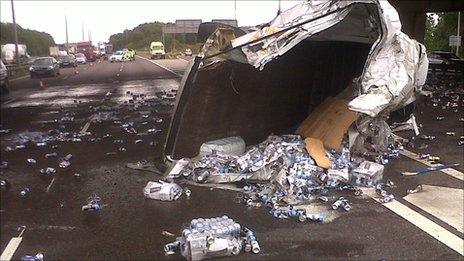Salmon and yeast: The strangest spillages on our roads
- Published
Just days after a lorry caused severe delays by shedding 24 tonnes of lard across a motorway slip road, BBC News takes a look at the strangest items spilled on England's roads.

Baked beans, M11, Essex
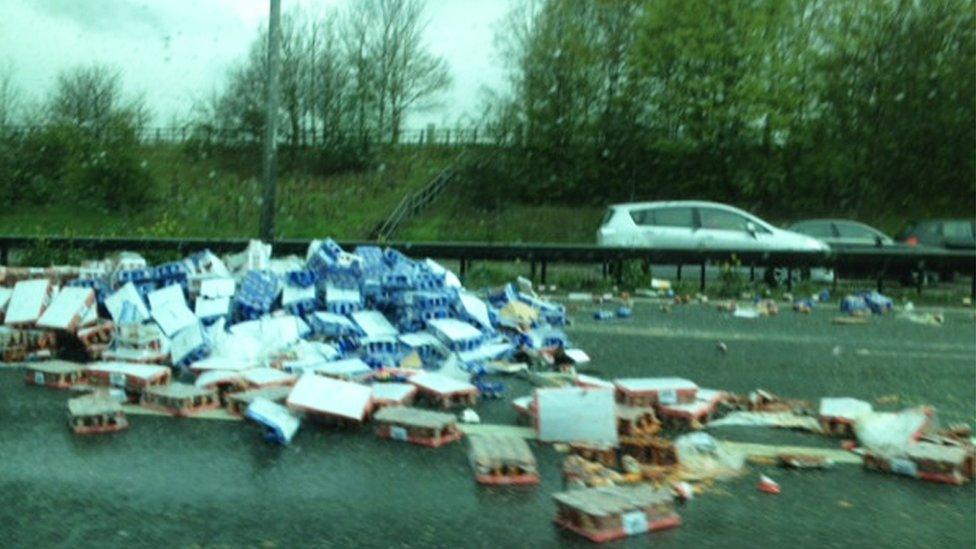
A passer-by stuck in traffic snapped a picture of the bean spillage
Thousands of tins of beans were strewn across three lanes of the M11 in Essex in 2012 after a lorry swerved to avoid a car and smashed into the central reservation.
No-one was hurt in the accident near Epping, but a mini-digger had to be called in to scoop up the cans of pulses and clear the road.
The southbound carriageway between junctions six and seven was closed for around three hours.

Yeast extract, M1, South Yorkshire
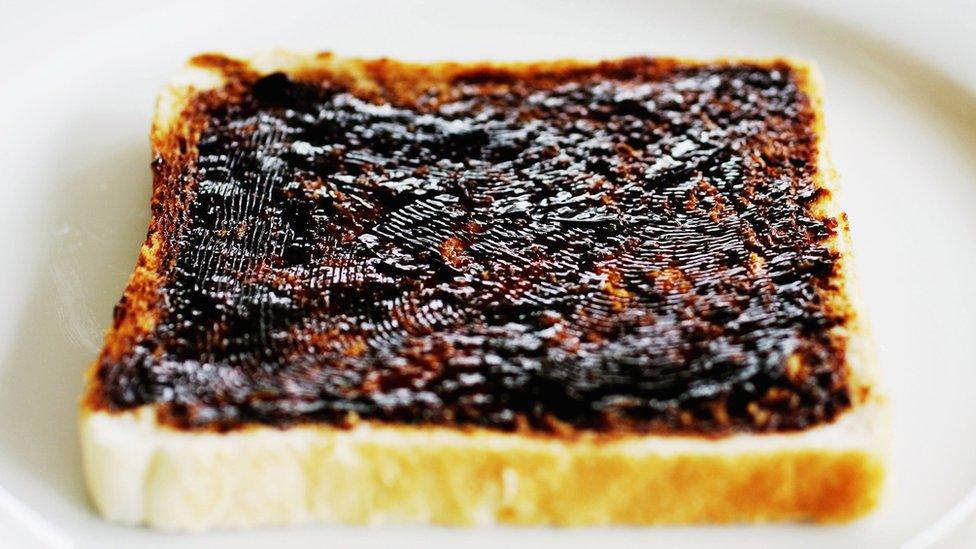
A spillage of yeast extract caused a jam on the M1
The M1 ground to a halt in the winter of 2011 when 20 tonnes of yeast extract oozed across the carriageway near Sheffield.
Specialist teams were dispatched to stop the sticky black mess spreading in a clean-up operation that took 12 hours.
The Environment Agency was called in to help over fears the substance could pollute local waterways and suffocate fish.

Lager cans, M6, Coventry
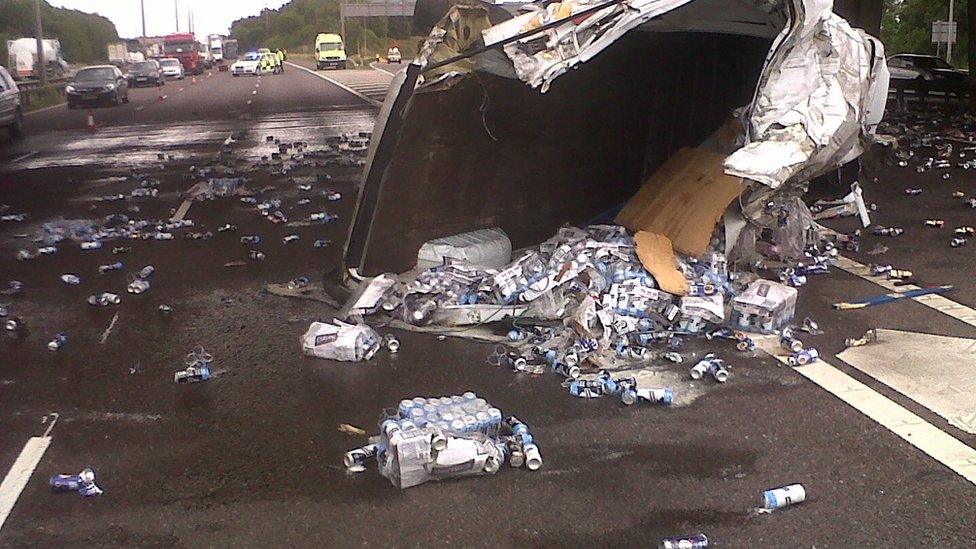
The van was carrying cans of lager when it overturned
Hundreds of cans of lager rolled across the M6 at Coventry in 2011 after a van overturned and shed its load.
The link road between the M69 southbound and the M6 northbound was closed for almost four hours while Highways England picked up every single tin of beer by hand.

Salmon, M62, East Yorkshire
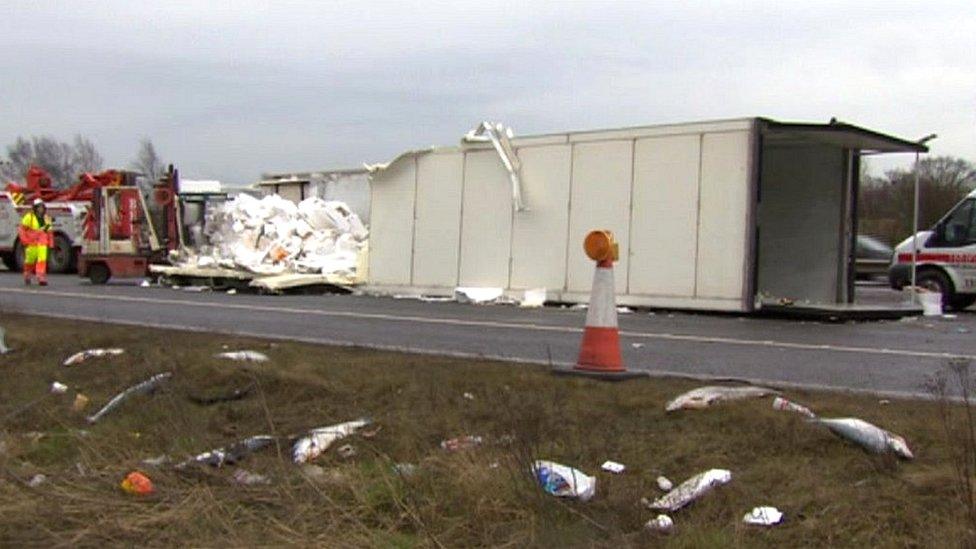
The salmon spillage on the M62 was a 'complicated clean-up'
Ten tonnes of salmon had to be picked up by hand in the dead of night after an HGV overturned near Goole in 2013.
The frozen fish was strewn across both the east and westbound carriageways and the 44 tonne lorry was blocking several lanes.
Highways England worked into the early hours to get the road reopened in time for rush-hour traffic in what they described as a "complicated" clean-up mission.

Chickens, M62, Manchester
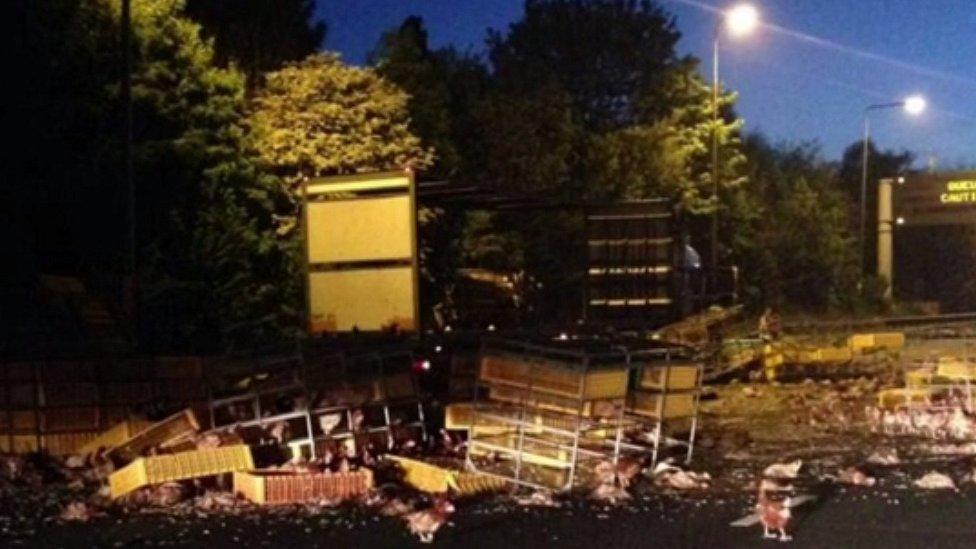
Around 1,000 chickens were killed in the M62 smash
Hundreds of chickens perished on the M62 in Greater Manchester last year after a lorry smashed into a safety barrier.
The vehicle was carrying 6,800 chickens when it crashed and about 1,500 died from the impact or were killed by passing traffic.
Some 2,000 birds escaped and had to be recaptured by rescuers scouring nearby fields in the dark.

Animal blood and human sewage
Nasty substances spilled on our roads pose quite the challenge for agencies cleaning them up.
It took almost four hours for specialist teams to mop up animal blood from the eastbound carriageway of the A50 at Stoke-on-Trent in 2011 after the tanker carrying the liquid sprang a leak.
Similarly, in 2009, the Environment Agency had to be drafted in to deal with the aftermath of an HGV crash which saw raw human sewage seep across the A3 near Guildford.
It took five hours for the hazardous material to be removed.

Acid, M11, Essex
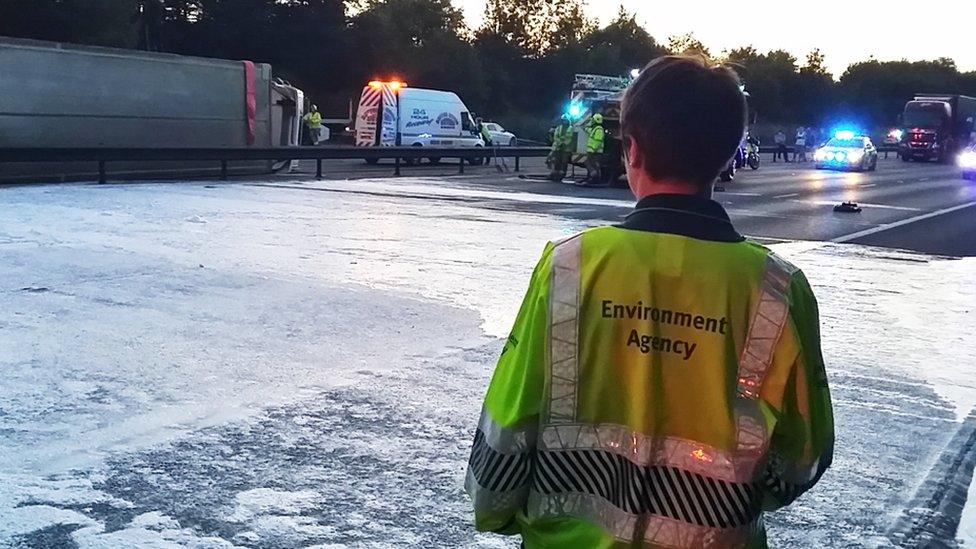
Motorists trying to get to the airport had to be diverted following the spillage
An acid spill closed the M11 near Stansted Airport for more than 12 hours last year after a lorry overturned, pouring melamine formaldehyde resin and phosphoric acid across several lanes.
More than 325 metres of carriageway had to be cleared and teams scrambled to clean up the mess before the substance solidified on the road.

Powdered cement, M6, Lancashire
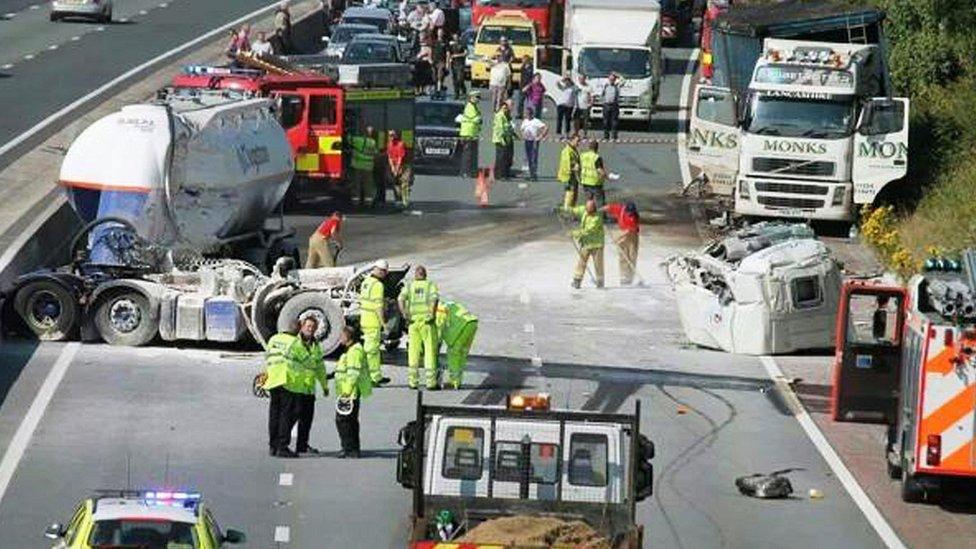
It took 18 hours to clear the road of powdered cement
Highways England was faced with a similar challenge just a couple of weeks later when powdered cement was spilled across the M6 on the hottest day of the year.
Motorists were left stranded between junctions 34 and 35 following a smash between two lorries and a car, which saw several hundred gallons of diesel from one of the vehicles mix with the powder, causing it to set.
It took 18 hours to clear and resurface the road.
- Published5 November 2015
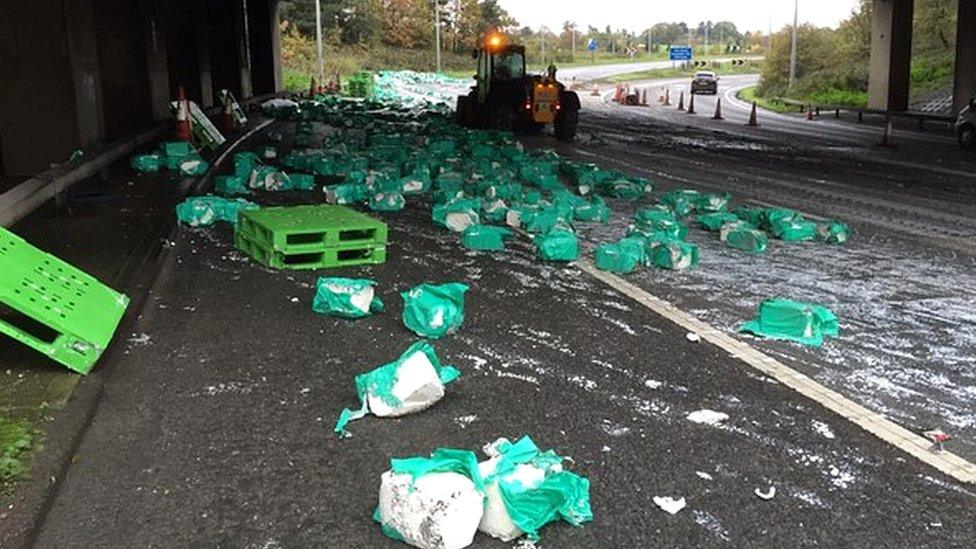
- Published25 July 2014
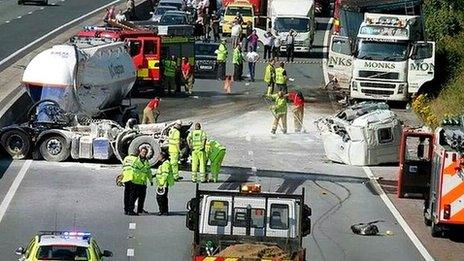
- Published3 July 2014
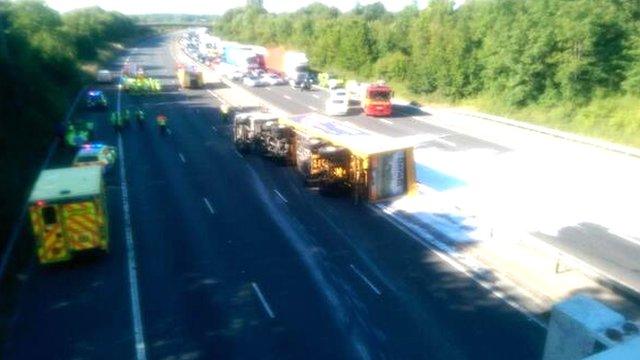
- Published14 May 2014
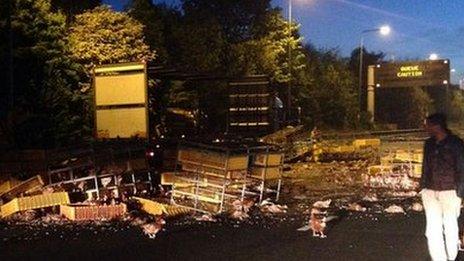
- Published15 March 2013
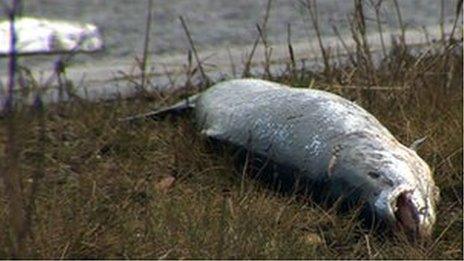
- Published29 November 2011
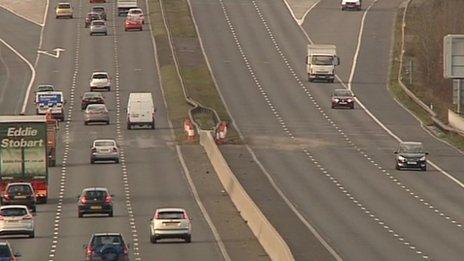
- Published13 July 2011
